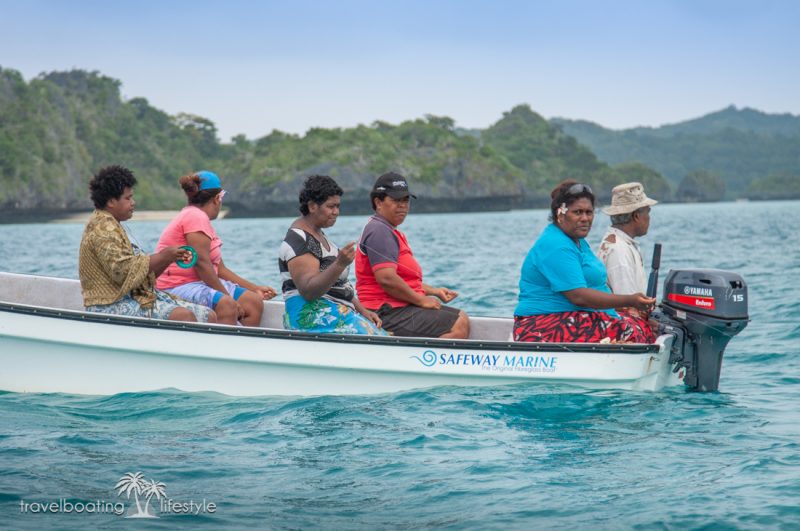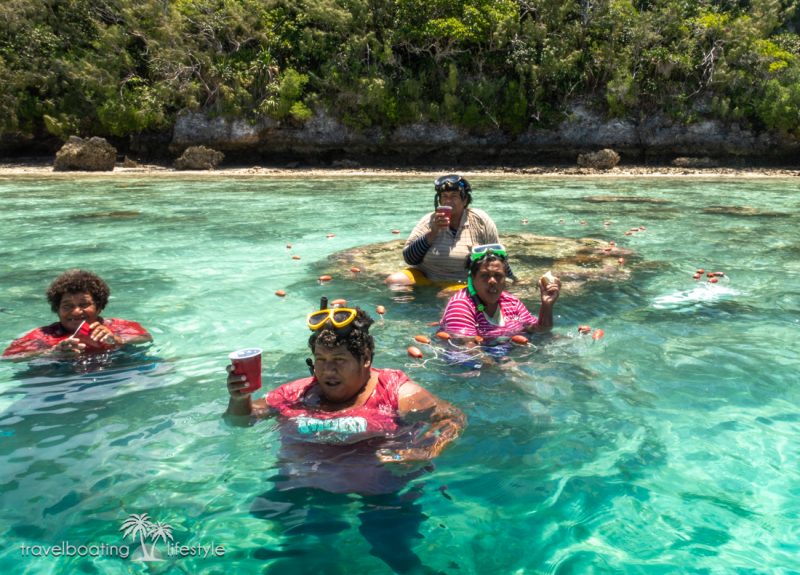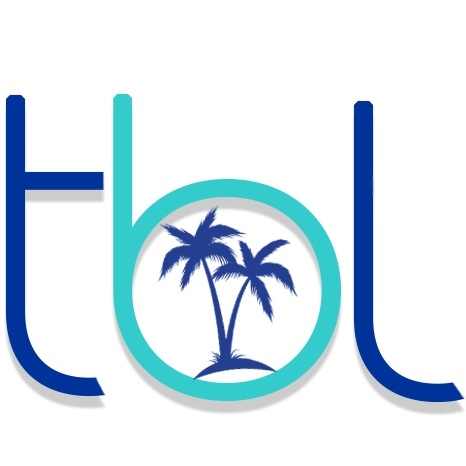Fulaga Island (also spelt Vulaga) is a small island within a lagoon in the Lau Group of Islands, Fiji. At the southern end of the Lau archipelago, Vulaga is one of the most remote islands of Fiji’s 300-plus islands. Three villages house approx 100 residents, with Muana-i-cake village the main village.
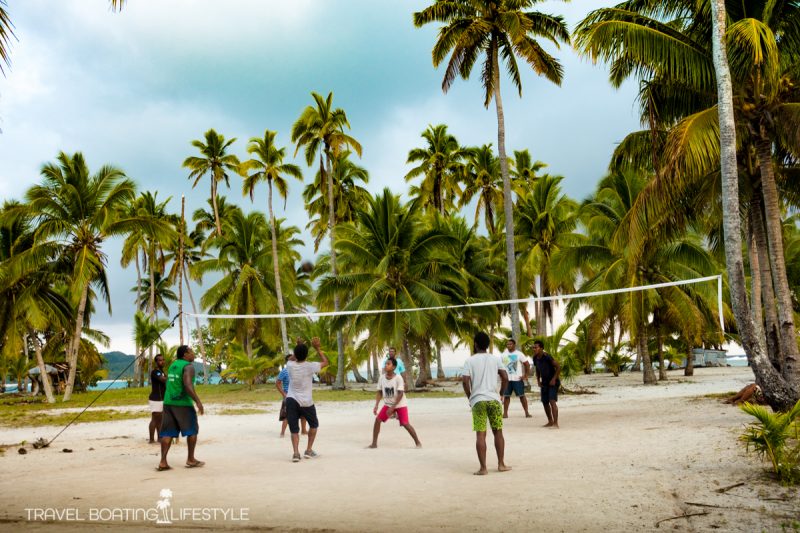 Muana-i-cake Village
Muana-i-cake Village
There are three villages at Fulaga Island (pronounced Foo-lang-ah) with Muana-i-cake village (* pronounced Mon-a-tha-key) the main village and the first stop for sailors. As is customary for visiting any Fijian island, it is necessary to ask permission to use the land, beaches and waterways by way of participating in sevusevu. A donation of kava (also known as yagona) root should be presented to the Chief’s representative. On arrival at Fulaga Island, boat crews are required to pay 50FJD per vessel. Village elders use the money to improve facilities within the village.
One unique aspect of Fulaga is that a family will host the crew from every vessel that anchors in the lagoon. A village of around 100 residents, families take turns at playing host, welcoming boaties into their homes and their hearts.
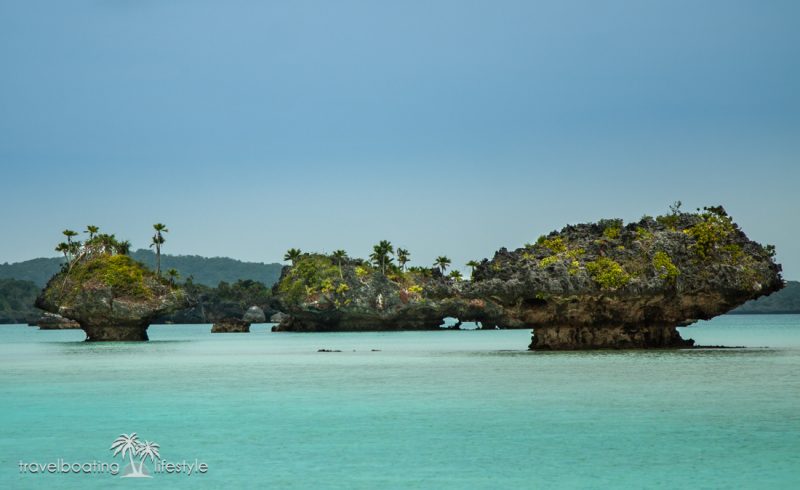

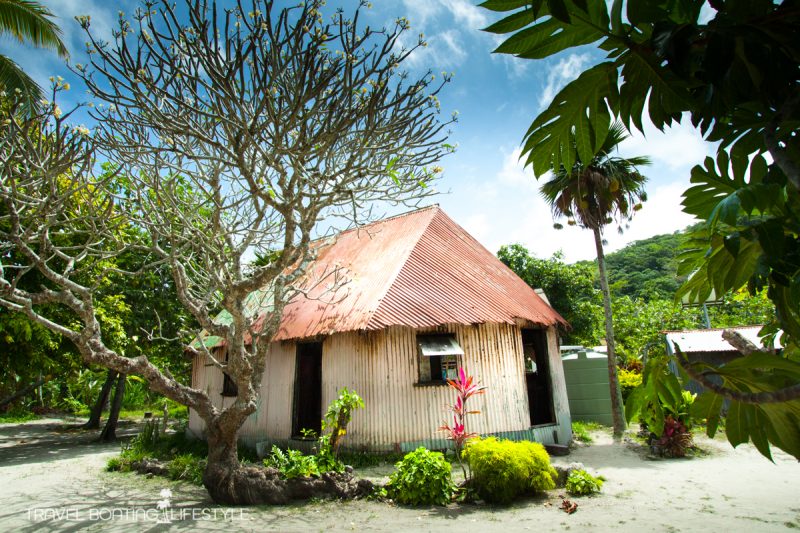

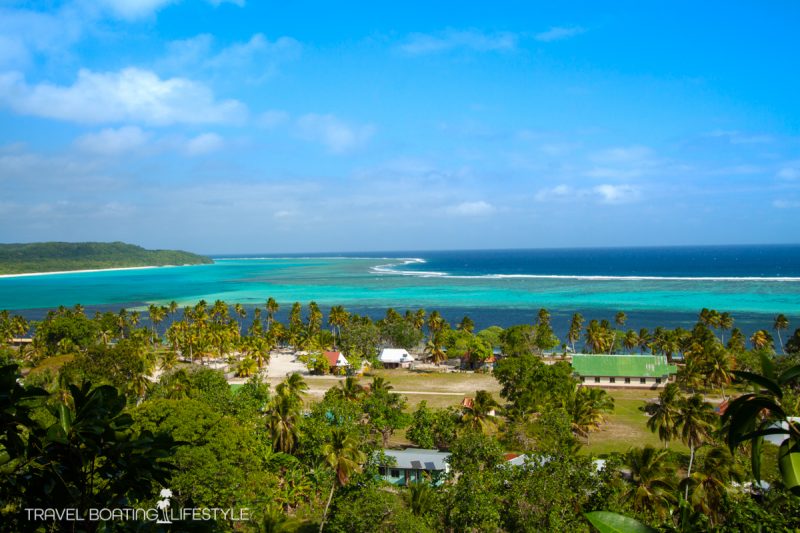
The Chief’s Welcome
“I am Mika Colati from Muana-i-cake village of the Vunikoro clan, Acting Chief of Vulaga Island in the Southern Lau Group, Fiji. I welcome David and Fiona into our village and support their collecting of stories and photos…
I think it is a good idea to collect the stories from us, so everybody can look back at what is recorded to help us remember our traditions. I remember our forefathers, our grandfathers and my father and know that solesolevaki* and veiwasei* * is a good idea, we really like how it helps the village… our families can look back and everybody will remember our village.”
* Solesolevaki defines the Fijian community spirit which guides villager’s contribution to the overall prosperity of the village by helping each other with farming, building, fishing, family chores, or wherever else help is required.
** Veiwasei describes Fijian generosity of sharing resources and skills between family, clan and village
